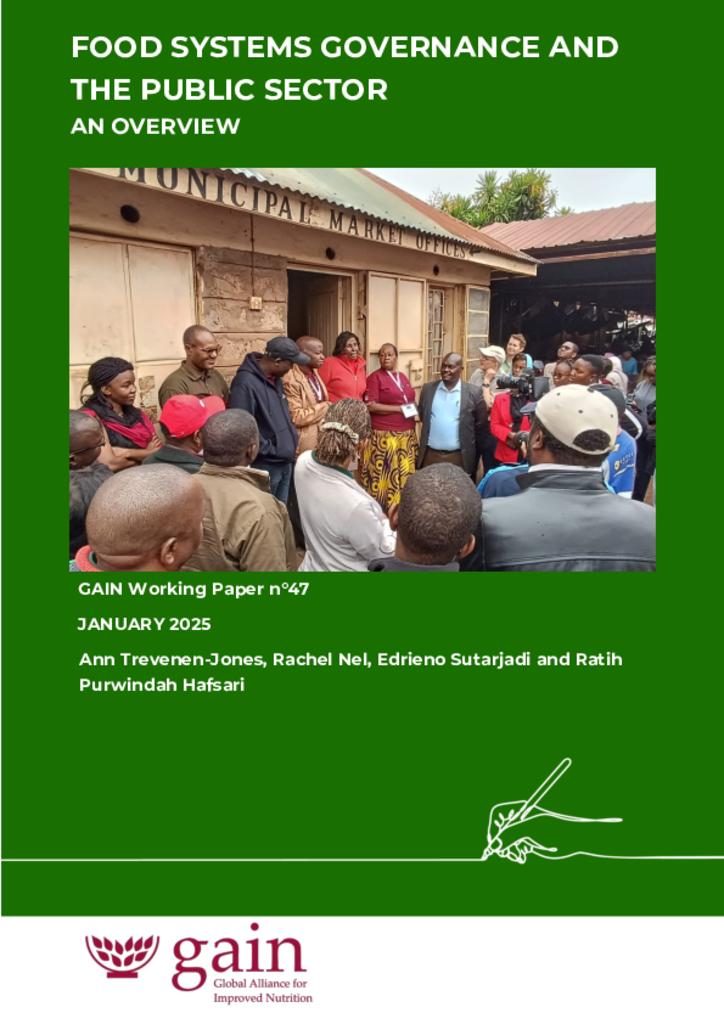The public sector plays a crucial role in transforming food systems through leadership, structures, and processes like policies and budgets as well as the extent to which it enables a whole-of-society approach. Understanding public-sector governance is thus fundamental to designing and implementing food systems transformation initiatives. This working paper provides an overview of public sector governance at the country level, with a food systems lens.
Public governance models vary across countries, and understanding these is vital for addressing challenges and trade-offs and leveraging opportunities in food systems. Local governments, including city governments, have close relationships to the daily lives of residents and landscapes. This makes them key players in bringing together multiple stakeholders, implementing locally relevant solutions, and strengthening capacity through sharing best practices, tools, and lessons learned via city-to-city networks. In a similar way, global food systems-related fora can provide opportunities for national, sub-national, and local governments to enhance the evidence base on food systems transformation and shape wider food systems outlooks.
Inclusion and equity are cornerstones of a just transformation across all the socio-ecological elements and relationships that are part of the food system. This encompasses fostering local agency and providing a legitimate space for diverse perspectives on knowing and being a part of food systems involving different stakeholders, including vulnerable and marginalised groups like low-income households, women, youth, and indigenous communities. Good governance principles and food systems governance guidelines can further support collaboration and effective and just transformation. Further exploration is needed into governance relationships between urban and rural governments, communities, and the intersection of food systems with other systems like climate and formal and informal economies.
